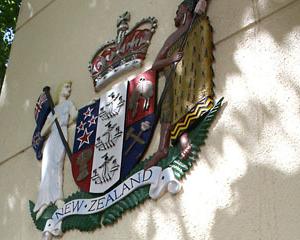A bitter dispute between two dairy farms over a cattle grazing agreement has made it all the way to the High Court, seven years after the row began.

Avondale Pastoral Limited, a Southland-based dairy farm, agreed to graze 400 of their cows for nine weeks at a property operated by Saunders Dairy - another dairy farm 17km down the road.
Avondale was to pay $32 per cow each week, and in return Saunders' would feed each cow the equivalent of 15kg of dry matter per day. Avondale was able to access the property to check on the stock.
The cows arrived at the property in May 2015 and were gone again by late July - a slightly shorter period than the agreement stated.
But Avondale claimed multiple cows were returned in poor condition. By December, 39 had either died or been euthanised. The business subsequently refused to pay the third installment for the care of the cattle.
An "abusive exchange" took place between the parties.
Saunders' Dairy later launched a claim in the District Court, alleging Avondale breached its agreement by keeping the stock at the property for less than the agreed nine weeks.
The company also sought an order for Avondale to pay the $52,954 from the unpaid invoice.
Avondale Farms filed a counter-claim seeking $129,966 - the sum the company believed it was owed from alleged losses from the cows returned in poor condition.
A District Court judge eventually found that the agreement to provide each cow 15kg of feed per day was met by Saunders.
Whether or not the cows were adequately cared for required careful consideration from the Judge, who was provided with a vet report showing the majority of the cows had a body condition score (BCS) of below five.
But the judge said he could not exclude the possibility the condition of the cows stemmed from issues prior to Saunders' grazing of the stock.
Avondale was ordered liable to pay the sum of $48,156 - the cost of the outstanding invoice.
Avondale later appealed that decision with the High Court, based on the claim that the previous judge didn't consider its "unchallenged evidence".
That appeal was only heard by High Court Justice Gerald Nation at Invercargill in November last year, with his reserved decision released this week.
In that hearing, Saunders submitted that it was only their responsibility to feed the cows, per the agreement. Avondale, as the owner of the animals, was responsible for ensuring their health.
Avondale submitted that Saunders' should be required to prove "affirmatively" that the condition of some of the stock was not due to its own negligence.
Giving evidence to the court was a contractor who worked for Avondale. That contractor measured the average BCS of Avondale's milking cows to be 4.4 to 4.6 prior to the transfer - a range he described as "ideal" for that time of the season.
Justice Nation found that he arrived at those figures based on an average of the herd - not by looking at individual cows.
The assessment of the average condition of the cattle before grazing could not be used to prove there were no cows with issues that could arise down the line, he said.
Another farmer who gave evidence said he observed the herd walking from the Avondale farm to Saunders' back in 2015, saying the cows looked to be in "very light condition".
"Avondale had the onus of proving there had been a loss [to the cows] over the course of the grazing contract. To do that, they had to prove what the condition of the cows was at the beginning of the contract," the Judge said.
"They were not able to do that."
The question then became whether or not Saunders' met its obligation to feed the animals as agreed.
Dean Saunders, the owner of the company bearing his name, said the manager of Avondale, Stuart Telfer, asked him after a check-in visit if he could feed the cows more.
Saunders told Telfer if he was to increase the feed, he would have to charge more. Telfer then allegedly told Saunders not to bother.
Telfer had a different recollection, saying that Saunders told him over the phone he would increase the feed.
Telfer told the court that he believed Saunders had simply stopped feeding the cows in the days leading up to the cows being returned.
Telfer's wife later arranged for a helicopter to fly over the Saunders' farm the day after the cows returned, in an attempt to establish just how much the cows were actually fed.
That flight identified uneaten bailage left on the farm, the court heard.
A total of 39 cows that were sent to Saunders' were later euthanised. One was identified to have Johne's disease which causes cows to lose weight. There was no evidence that the disease was contracted during the grazing period.
Justice Nation concluded overall that, because there was no proof of the condition of the cows prior to grazing, it could not be proved the cows suffered any loss of condition.
"Even if it could be said some must have lost condition while being grazed on the property, I am satisfied that Saunders Dairy had proved, on the balance of probabilities, that any such loss of condition could not be attributed to [themselves]."
The appeal was dismissed.










